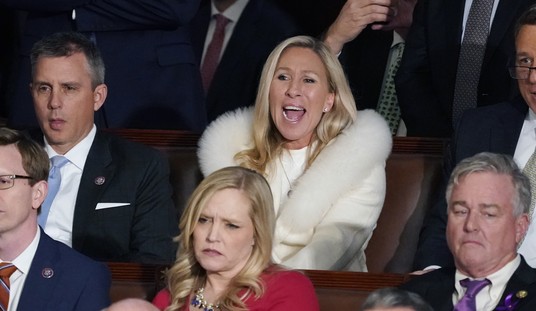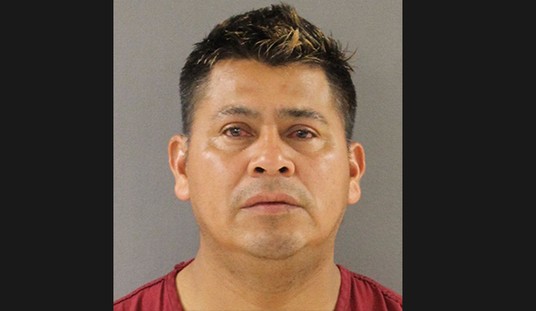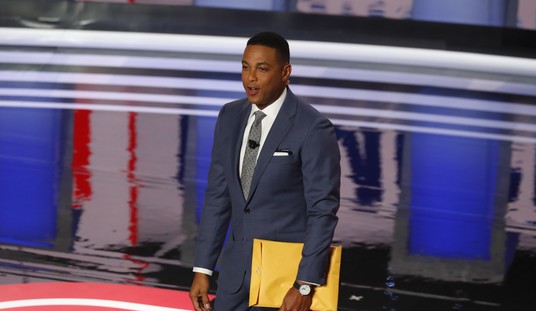
Anti-Putin protesters march through Moscow February 2, 2014, Russia. Several thousand protesters have marched through central Moscow to call for the release of 20 people who were arrested. Photo by Nickolay Vinokurov, Shutterstock.com.
The opening Olympic ceremonies, broadcast last night on NBC, were most revealing in what they told us about Vladimir Putin’s Russia. It was the fantasy Russia, sometimes beautifully portrayed, not the reality. In that sense, Putin put together propaganda offensive in the style of the late Joseph Stalin, a tyrant who the current leader of Russia admires for successfully having created an empire with world influence and power.
True, as Ed Driscoll writes, the narrative at the start of the program praised the Soviet era as one of history’s greatest “pivotal experiments.” Fortunately, NBC made the very wise move of hiring New Yorker editor-in-chief David Remnick as its official on-air live commentator. Remnick is author of one of the most insightful books about the fall of the Soviet Union, Lenin’s Tomb: The Last Days of the Soviet Empire, and Resurrection: The Struggle for a New Russia, about the early post-Soviet era.
Rarely have viewers of an opening ceremony had such an erudite and candid picture of what the ceremony meant, for which NBC deserves kudos. Remnick did not let the Putin narrative go unchallenged, and he regularly informed the audience of what Putin hoped to accomplish, and in what ways the narrative was completely false. He also provided context for most of the people who watched and who would have no idea of the program’s symbolism.
The program opened with a paean to the modernizing czar Peter the Great. Of this, the editors of the Wall Street Journal made the following point:
The choice of Peter the Great to headline the opening speaks to Mr. Putin’s self-perception, but in Sochi he has been more of a latter-day Potemkin. Russia estimated the cost of converting a beach resort into a world-class ski and winter sport center at $12 billion. The final tab came to $50 billion, more than every previous winter Olympics combined and even the 2008 Beijing summer games.
One road from the beach resort to the ski center alone cost 9 and a half billion dollars—the most expensive road ever built in the entire world. And even with an overrun in the billions, with seven years to prepare, the Kremlin could not even build the necessary hotels so they could open in time for receiving guests. Perhaps had they spent a million more in bribes, the work might have been completed.
Moreover, the past months have revealed gaps in Putin’s popularity, with mass protests throughout Russia, to which Putin’s regime has responded with the jailing of its opponents and the new ban on “gay propaganda,” with Putin assuring visitors that gays would be welcome at the Olympics, as long as they “stay away from children.”
Yet, the first part of the program about Peter’s legacy was beautiful. The sets and the choreography were magnificent, as Russia’s top dancers performed and viewers were able to see the lush façade created by the czars in gorgeous colors. Then, after a section showing turmoil and war, the narrative got to the birth of the Soviet Union. This section was shown in an ominous red color, which symbolized Communism.
The section began with a train forging ahead. As Remnick explained, every Russian who lived through Soviet times knew what this symbolized. It was the so-called “propaganda train,” which brought Soviet diktats to the nether regions of the USSR, at a time when there was no mass media, and all peoples of the tyranny had to be reached with Bolshevik policies meant to be obeyed and which were enforced by the Cheka, the name of the first secret police.
It was followed by a panorama of Soviet productivity and the birth of modern industry as dancers symbolized building of railroad tracks, cranes were everywhere setting up major building projects, and workers were drilling and hammering. We saw Soviet Lada cars riding through the stadium, and people rejoicing in the entry of Russia to the modern era.
Remnick did not let Putin get away with this. As he put it, this was an era of mass terror, the Gulag, severe repression and the worst years of the constant terror. There was no mention of Lenin, Stalin or any other future Soviet leaders — only a picture of the supposed great results of the five-year plans, which of course were never mentioned. Somehow, viewers learned only that Russia had modernized. It was in a strange way a choreographed picture of the thesis of the late Isaac Deutscher, the Marxist historian who argued that while Stalin was horrible, he obtained the results to build the Soviet Union into an industrial behemoth, which would then somehow be transformed into a humane, democratic Communist society.
Then viewers got what they wanted, as on two sides of the stadium, a giant hammer and sickle moved slowly to unite in the center of the display. So Russians got to learn that all these would-be great results were, of course, due to the strong hand of the Soviet leaders. And that is how the opening ceremonies dealt with the decades of Soviet rule. Put simply, the message was that Stalin and company build up the great Russia, on which today’s leader, Vladimir Putin, is carrying on this work.
Mark Kramer, the eminent Cold War historian at Harvard, made this point in a Facebook post:
The opening film segment about Russian history was disgusting in its warm, admiring allusions to the Stalin era. The tens of millions of victims of the Soviet era were airbrushed out. The equivalent in Munich 42 years ago would have been for the opening film segment to show warm, fuzzy clips about the building of the Autobahn and the reduction of unemployment under Hitler.
Finally, beautiful stage effects were used to display the current period, as we watched modern Russia forge into the new future, in which once again, Russia will be a great power. Again, Remnick stated for viewers what this meant. The entire program was an ode to Putin, in which he wanted the world to view him as another strong Russian leader, who is using his power to make Russia a world player, as it once had been under the czars and the Bolsheviks. Co-anchor Matt Lauer reminded us of Putin’s famous statement that the fall of the Soviet Union was one of Russia’s greatest catastrophes.
Unfortunately, reality trumps fantasy any day of the week. After watching this show, the average Russian has to go into the street, and manage to get by. As he leaves his decaying Soviet era apartments, he knows immediately that the Russia in which he lives bears no resemblance to what was displayed at the Olympics.









Join the conversation as a VIP Member